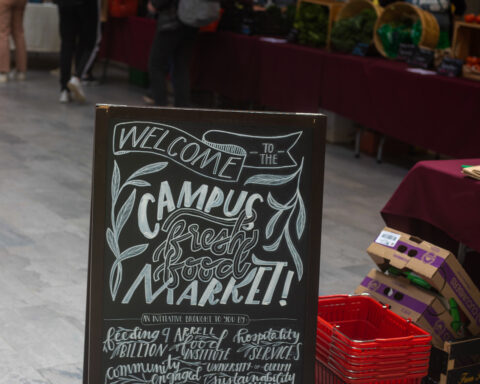The just-concluded National Metropolis Conference is an annual forum for researchers, policy makers and immigrant-service organizations. This year the conference was held in Montreal.
Here are some of the themes covered and my take on them:
Integration – The Search for a New Metaphor:
This session, prompted by the Canadian Index for Measuring Integration (CIMI) discussions on the meaning and definition of integration (and my Integration and multiculturalism: Finding a new metaphor – Policy Options) drew a good crowd (60-70 persons).
I opened with my critique of the “two-way street” metaphor by emphasizing that it did not capture the dynamic and ever-evolving nature of immigration, presenting my preferred metaphor, harmony/jazz, where harmony represents the underlying framework of laws and institutions, and jazz the improvisation involved in resolving accommodation demands.
Mort Weinfeld of McGill University drew from the personal experience of his parents and talking to cab drivers, noting that integration of the second generation is key. His preferred metaphor is the roundabout, with multiple points of entry and exit, with traffic moving smoothly.
Richard Bourhis of UQAM provided a Quebec perspective, looking at how Quebec language policies were characteristic of an assimilationist approach.
Elke Winter of the University of Ottawa drew from her analysis of European policies and practices and noted a third dimensions, that of outside actors and transnational forces (e.g., other countries, home communities of immigrants), and that integration was more a three-way than two-way process.
The presentations prompted considerable discussion, although no one jumped to the defence of the ‘two-way street.’
Thinking about next year, this is a topic that merits further exploration, perhaps involving some literary descriptions or metaphors.
Citizenship – Factors Underlying a Declining Naturalization Rate:
In the only session on citizenship, Prof. Winter opened the workshop with an overview of how Canadian citizenship has evolved over the last 150 years, setting out four phases: colonized citizenship (pre-1947), nationalizing citizenship (1947-76), de-ethnicising citizenship (1977-2008) and re-nationalizing citizenship (2009-15) with a possible fifth phase emerging under the Liberal government. She presented some preliminary findings from an interview-based study.
I followed with my usual presentation of citizenship statistics, showing the impact of previous policy and administrative changes along with an assessment of the 2014 Conservative changes and Liberal partial repeal of these changes (currently in the Senate).
Jessica Merolli of Sheridan presented the key MIPEX naturalization indicators and data from the European Social Survey comparing immigrant/non-immigrant attitudes on issues such as self-sufficiency, interests in politics, LGBT acceptance and others and how over time in the country of immigration differences declined. The most striking exception was with respect to interest in politics, where immigrants, no matter how short or long the time, were more interested than non-immigrants.
Questions of note included do we need a citizenship knowledge test given that it presents barriers for some groups, and the impact that the physical presence requirement has on families when one parent has to work abroad given difficulties in obtaining well-paying work in Canada.
Minority Voice, Identity and Inclusion – Media and Literary Expressions:
A mix of a case study (Punjabi media by Syeda Bukhari where she noted the ethnic media was getting more sophisticated in comparing what politicians said to English and ethnic media and thus holding them to account) and the overall contribution ethnic media provides to integration (Madeline Ziniak, current chair of the Canadian Ethnic Media Association (CEMA)).
Myer Siemiatycki of Ryerson University gave a fascinating presentation regarding the person and poetry of Julian Tuwin, a Polish Jew (or Jewish Pole) whose loyalty and identity were attacked by both sides.
Negotiating “fit” – Connections Between Employer Mindsets/Practices and Labour Market Success of Newcomers:
Kelly Thomson of York University provided an overview of the issue of “fit” and presented a case study of foreign-trained accountants. Aamna Ashraf of the Peel Newcomer Strategy Group (near Toronto) presented the results of a study on soft barriers, with focused and practical recommendations. Madeline Ng of Autodata and Nancy Moulday of TD Bank presented how their respective organizations encourage and facilitate diversity in their workforces.
Fitting In: Identity and belonging among second generation Canadians:
Elizabeth Burgess-Pinto of MacEwan University organized this roundtable discussion focussing on the second generation. A number of second generation (and generation 1.5) participants shared their experiences, challenges and identities.
Andrew Griffith is the author of Policy Arrogance or Innocent Bias: Resetting Citizenship and Multiculturalism and is a regular media commentator and blogger (Multiculturalism Meanderings). This commentary was adapted slightly from his blog post on the conference. He is the former Director General for Citizenship and Multiculturalism and has worked for a variety of government departments in Canada and abroad.
Andrew Griffith is the author of Multiculturalism in Canada: Evidence and Anecdote, Policy Arrogance or Innocent Bias: Resetting Citizenship and Multiculturalism and many other works. He is a former Director-General of Citizenship and Immigration Canada, Citizenship and Multiculturalism branch. He regularly comments on citizenship, multiculturalism and related issues, in this blog and the media.





